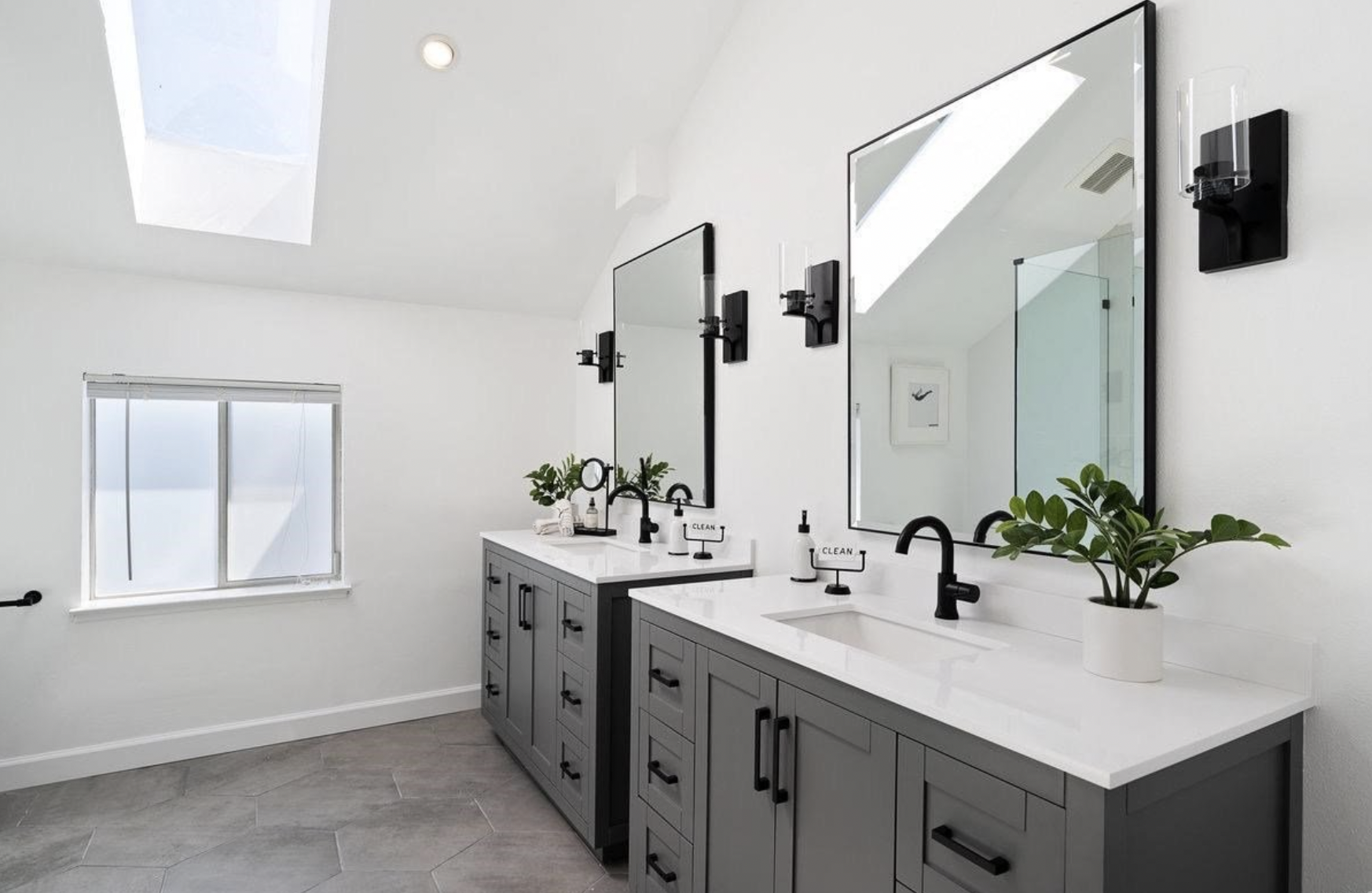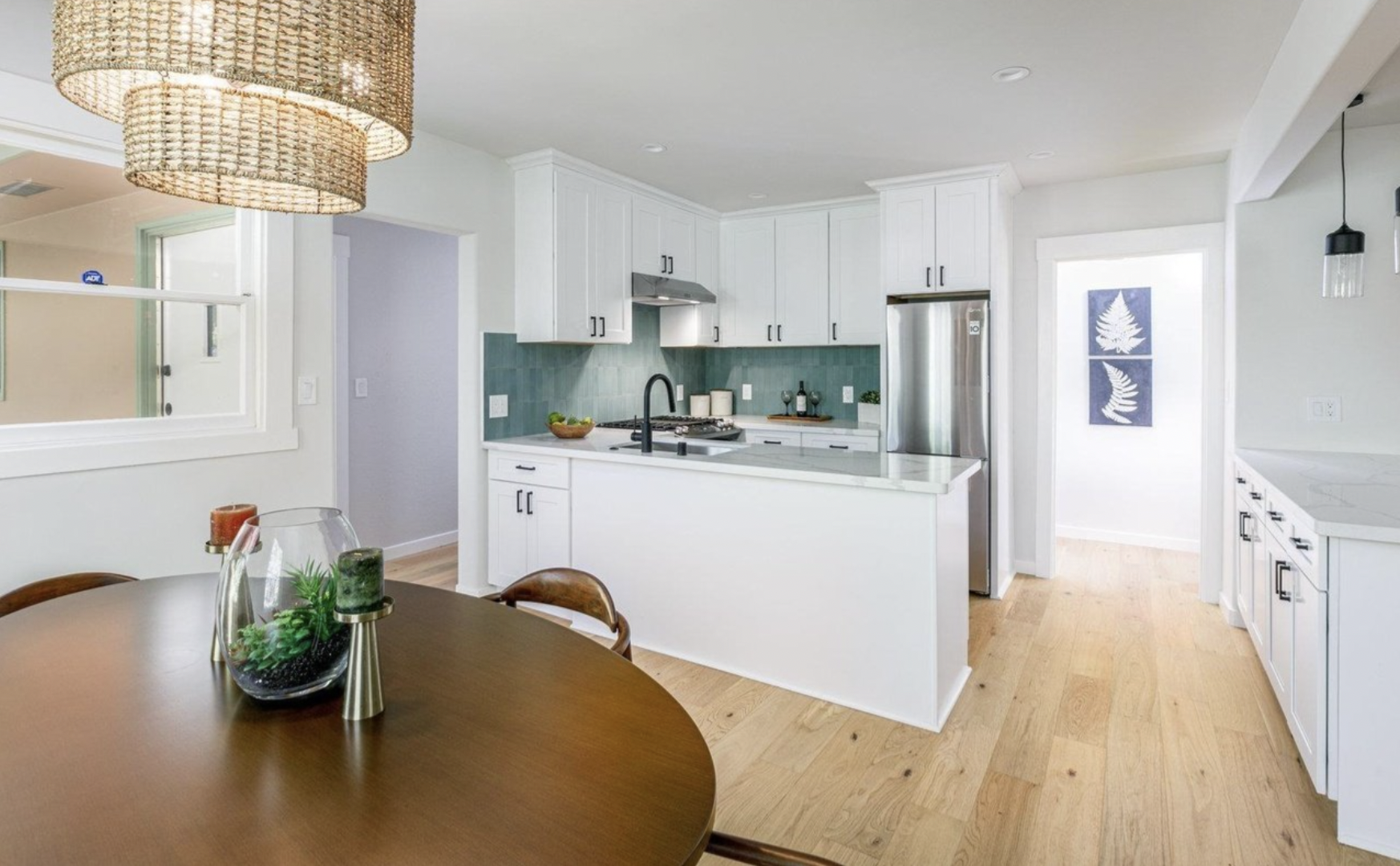What To Expect When You’re Remodeling Pt. 5
Jan 19

Agents: Freemodel is committed to helping your seller clients understand, embrace, and participate in the remodeling process. This blog article is one in a series designed to share up-to-the-minute insights and learning on this process. We hope you will share this and future articles with your sellers so they can maximize the sale prices of their properties.
Should I Stay Or Should I Go?
Dear property sellers: Welcome back to our series What To Expect When You’re Remodeling! In this series, we’re sharing information to help you plan your pre-sale or post-sale renovation. You may not have been through this process before, but we do this for a living and have a lot of insights to share. (At Freemodel, we manage and pay for the remodel to help sellers like you earn top dollar on their home sales.)
It should come to no surprise that construction work can cause disruption and mess in any home. Noise, dust, toxins, and debris can take over your property and may cause many living spaces to be uninhabitable for days or even weeks. Renovations can easily interrupt your day-to-day life and, on the flip side, the presence of a homeowner can also hinder the progress of contractors who are coming and going. However, we understand that moving out of your home can add to the complexity of budgets and timing when doing remodels or repairs to avoid scaring off potential clients, project estimators may not mention that you'll need to move out during renovations. So, we put together a list of pros and cons when it comes to staying through a renovation, and offer our advice as to what type of renovations warrant a homeowner to find temporary lodging.
Here are some pro’s to staying:
- Staying in your home can save you, the homeowner, the hassle of having to find temporary lodging, such as a hotel or short-term rental, or staying with friends and family.
- By staying, you can more closely supervise the progress of a renovation, monitor who is coming and going, and check in with contractors on a more regular basis.
- You can lower your overall renovation costs by staying and not having to pay for a short-term rental or hotel.
Here are some con’s of staying:
- If you have small children, seniors, or pets, there can be added difficulty when it comes to dealing with dirt, dust, and toxins. This can be especially dangerous if anyone has respiratory issues, allergies, or other health issues.
- The expense of heavily scheduling and working in phases can add to your overall renovation cost. If you are delegating when contractors can come and have some parts of your home closed off for your use, this can slow work down and become difficult to schedule multiple people at a time.
- Staying home may warrant additional activities such as daily cleanups, frequent resealing of rooms, removal of dust barriers, and overall create more chores for you as the homeowner. This could also add to the project timeline if a full cleanup needs to happen daily.
- Being limited to a confined space in your home can create tension and frustration and impact routines. As discussed in Pt. 4, having a negative attitude during a renovation can be noticeable to those working on your home and slow down the process.

Melissa’s Freemodel project in Mill Valley, CA
Here are some renovations that we recommend homeowners move out for:
- A Full Gut Renovation
- A heavy overhaul of a property can take weeks or even months, and moving out is generally the best option for when this type of work takes place. Demolishing and hauling old items, installing new appliances in a kitchen, replacing fixtures in bathrooms, and other miscellaneous work throughout a home can make for an unsafe living environment. Timelines for a renovation can also be extended as we discussed in Pt. 2, and you do not want to have to be stuck living in a stressful environment for longer than expected.
- A Kitchen or Bathroom Renovation
- If you are planning to renovate a critical space like a kitchen or a bathroom, we recommend that homeowners also move out for this process. The kitchen and bathroom are two frequently used spaces in a home that most people enjoy uncompromised access to. It could be difficult to not be able to cook for a week, and especially unenjoyable to have to use a porta-potty outside of the home. Kitchen and bathroom renovations also tend to disrupt plumbing and limit water usage in a home, which can pose other problems if you were to stay. If planning to stay through these types of projects, be prepared to order a lot of takeout and definitely talk with your contractor about how long your toilet or shower will be offline.
- Major Electrical Work
- Living through major electrical work such as rewiring a home can not only be disruptive to you but also dangerous to your safety. Being unable to use certain appliances or turn on the lights for extended periods of time can disrupt your schedule and routines, and can also be dangerous when dealing with the changing of old wiring. Older drywall and lath-and-plaster walls can contain asbestos; drilling new holes can cause it to become airborne. We recommend that you consider moving out during an electrical renovation, or at minimum talk with your electrician about specific timelines and safety precautions.

Lara’s Freemodel project in Oakland, CA
Deciding whether to stay onsite or vacate during a home renovation can be a difficult decision and varies from person to person and family to family. Certain factors and needs may warrant you to move out, especially if children, the elderly, pets, or any person with a health complication is present. Renovations can spur up a lot of dust and toxins that could be difficult to navigate from day to day. Conversely, there are less-invasive renovations that are easier to live through, such as partial re-roofing or backyard landscaping. If you have local family or friends, an ADU that is not part of the renovation, or access to short-term rental options such as Airbnb, moving out will ultimately keep your project timeline on track but might add a bit more to your budget than expected.
Regardless of what you decide to do, we always recommend speaking with your contractors or project director to better understand timelines, what parts of the home you will have access to at what times, and always err on the side of caution! Always rely on professional opinions and understand that the people working on your property do not want to add any more inconvenience or discomfort to an already detailed process.